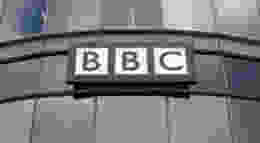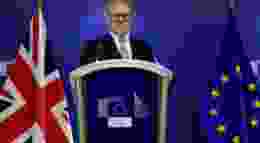
The scientific method is under attack
Bill Wirtz looks at the "who funds you" routine, practiced by activists it's set to hurt the trust in the scientific method.
Assume a scientist were to tell you that a certain mathematical equation is demonstrably correct. You could twist and turn the equation in any possible way, yet you would always come to the same conclusion. Now assume this scientist had spoken at a conference once, and his or her hotel room had been paid by an industry which had a vested interest in the equation being true. A conflict of interest, some would say, yet you could only assume that it resulted in a distortion of his or her scientific work if you could show that the equation was false. No money in the world can change facts.
EFSA, the European Food Safety Authority, is currently dealing with accusations of this nature. A European NGO called "Corporate Europe Observatory" (CEO) denounces the working group assessing the safety of gene drives – which is genetic engineering technology – as "compromised". CEO claims that two-thirds of the working group have "financial links" to industry and organisations with vested interest in the matter of gene-editing.
However, EFSA responded to every single one of the concerns in a professional and detailed matter. The agency did not see a single instance in which the described "links" were of concern. For instance, CEO denounced the fact that Michael Bonsall, Professor of Mathematical Biology at Oxford University, has direct financial links with the British biotech company Oxitec. It turned out that the "direct financial links" were not financial investments with Oxitec, but research activities co-financed by the University of Oxford and Oxitec itself. In essence: these were public-private funded research projects between a private company and EU research grants.
But the work for CEO is done, so much so that EFSA's devastating answer to their claims even now appears on their website. The scientists were smeared in the media, and no matter how many rebuttals the EU's food safety agency would issue, much of the damage is already done. The headlines reading "food safety scientists accused of being bought" is all that these activists – who are sworn enemies of industrial agriculture – need.
The fact that gene-editing technologies could have a huge impact in reducing the death toll from diseases such as dengue fever, yellow fever, and the Zika virus, is irrelevant to their quest.
A similar thing happened to French journalist Emmanuelle Ducros. The L'Opinion journalist is known for her columns on agriculture, calling out the unscientific work of environmental activists, and defending the scientific method against anti-GMO, anti-free trade, or anti-pesticide activists. Ducros was dragged through the mud by the French newspaper Libération and social media outrage ensued, all for moderating panels at industry conferences hat have a vested interested in the area of pesticides. Expenses were covered by these same interest groups. It remains a question of its own whether having your train journey and hotel room covered in a work context actually has that much of a powerful influence on your journalistic integrity. Never mind that the essence of what is backed up by evidence and what isn't should be what determines that which can be reported as a fact.
For environmentalist NGOs, the Jaws (1975) quote "We are going to need a bigger boat" could easily be transcribed into "We are going to need a bigger smear". The scientific method is under attack by those who do not believe in analysing and comparing evidence, but who claim that a spider web of industry groups have captured all the pro-science voices by bankrolling opinions. As a result, politicians legislate and regulate scientific innovations, and restrict consumer choice.
"What is your evidence?" is replaced by "Who funds you?," and is killing the scientific debate. The consequences of that will be long-lasting.













